As a small business owner (who wants to grow their business), your website is often the first point of contact between your company and potential customers—with that in mind, ensure that your website is visually attractive and contains all the necessary pages to effectively communicate who you are, what you do, and how to contact you.
This article will discuss the essential website pages every small business website should have and some additional pages that can enhance the user experience. You will also discover a list of pages on a website for different niches.
List of Pages a Website Needs:
Essential Pages Every Website Should Include
Every website has a few core pages that are crucial for effective communication and user engagement. Let’s explore these essential pages.
Homepage
The first thing visitors see when they access your website is your homepage. So, creating an excellent first impression is critical. Because it only takes about 50 milliseconds for users to construct an opinion about your business. The purpose of your homepage is to give guests a quick outline of your business and what you do.
Elements to include on your homepage:
- A clear headline explains what your business does
- A call-to-action (CTA) encourages users to take the next step
- Testimonials to showcase your credibility
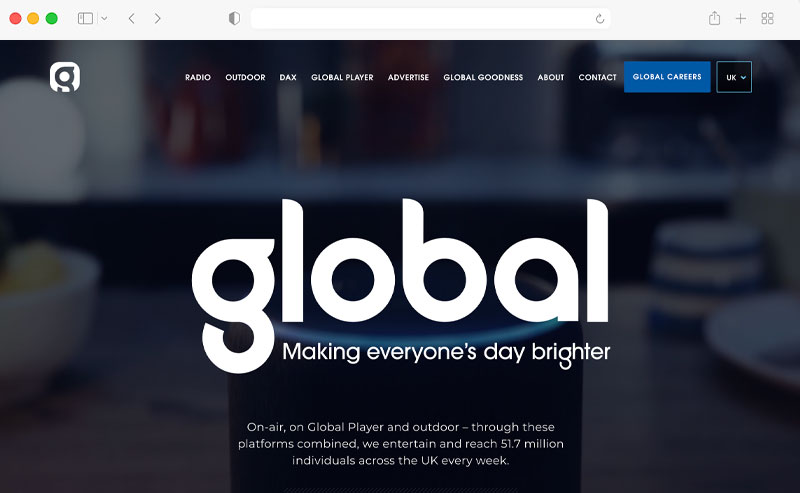
About Us Page
The About Us page lets visitors learn more about your business, its history, and what sets it apart from the competition. According to statistics, once on a company’s website, 52% of visitors want to see “about us” information.
Elements to include on your About Us page:
- A brief history of your business
- Your company’s mission and values
- Any awards your business has received
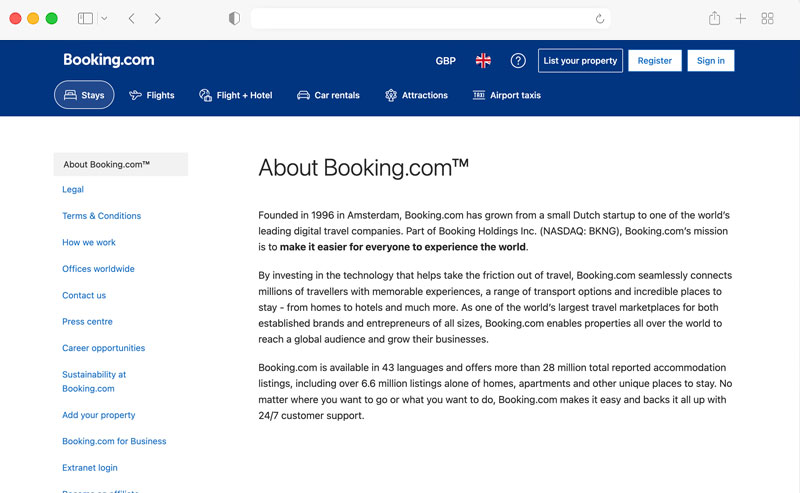
Products/Services Page
The Products/Services page lets visitors learn more about the products and services your business offers. 86% of visitors, upon arriving on a company’s homepage, desire to view information regarding the company’s products/services, as reported by statistics.
Elements to include on your Products/Services page:
- A clear and concise description of each product/service
- High-quality images and videos of each product/service
- A list of features and benefits of each product/service
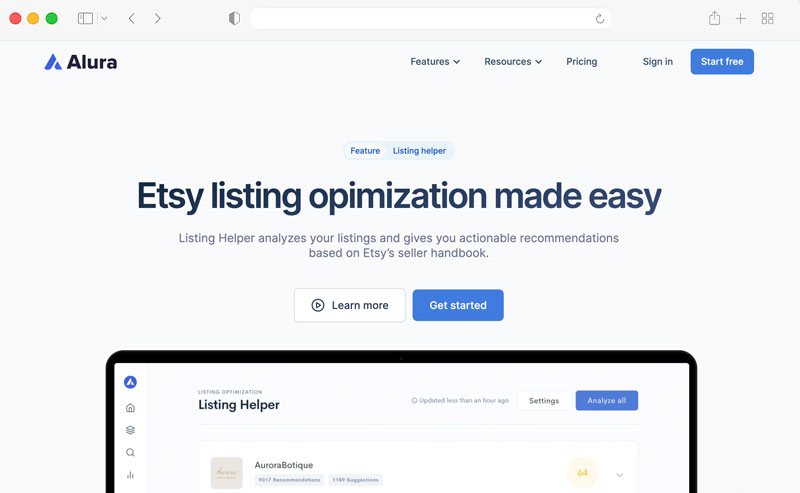
Contact Us Page
The Contact Us page is where visitors can find all the necessary information to get in touch with your business. This includes your physical address, phone number, email address, and any other contact information you want to provide. Statistics indicate that 96% of visitors, upon arriving on a company’s homepage, seek to view the company’s contact information.
Elements to include on your Contact Us page:
- Your physical address, phone number, and email address
- A contact form for visitors to submit inquiries
- A map or directions to your physical location
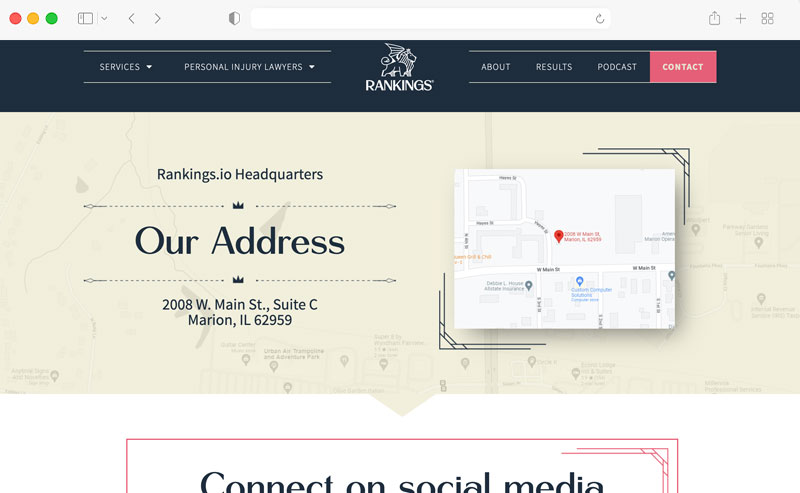
Testimonials Page
The Testimonials page is where visitors can read about the positive experiences of your past customers. This page helps to establish trust and credibility for your business. Statistics show that testimonials can increase conversions on sales pages by 34%.
Elements to include on your Testimonials page:
- A selection of positive customer reviews
- The customer’s name and location (if they give permission)
- A quote or excerpt from the review
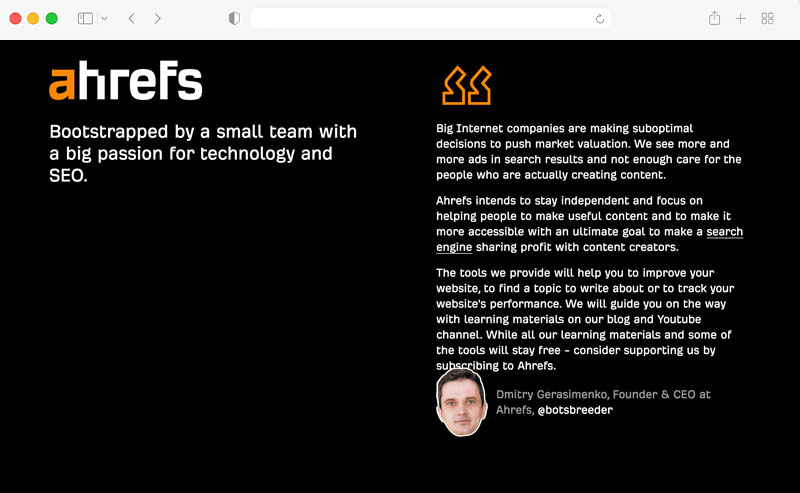
Privacy Policy Page
A Privacy Policy page is a must-have for most websites. It informs visitors about how your business will handle their personal information. This page should be easy to find on your homepage and written in simple language.
Plus, it’s a legal requirement if your website collects personal information from visitors. Not having this page can lead to legal issues and harm your business’s reputation. Keep your Privacy Policy up-to-date to avoid any problems.
Terms of Service Page
The Terms of Service page, also known as the Terms and Conditions page, is where visitors can find details about the legal agreements controlling the use of your website and services. This page is essential to guard your business and set website visitor expectations.
Good-to-Have Pages
In addition to the essential pages every small business website should have, there are a few “good to have” pages that can enhance the user experience and provide additional information for your visitors.
These pages may not be critical for the functioning of your website, but they can help build trust, deliver more detailed information, and drive more sales.
Blog Page
A blog is a good-to-have component for small business websites. It allows you to post regular updates and articles about your products or services, making it a valuable resource for visitors.
Additionally, it helps boost your website’s visibility by providing fresh content for search engines to index, resulting in higher rankings and organic traffic. Research shows that a blog can increase your chances of ranking highly on search engines by 434%.
Elements to include on your Blog page:
- A list of recent blog posts
- Categories to help visitors navigate your blog content
- A search bar to allow visitors to find specific posts
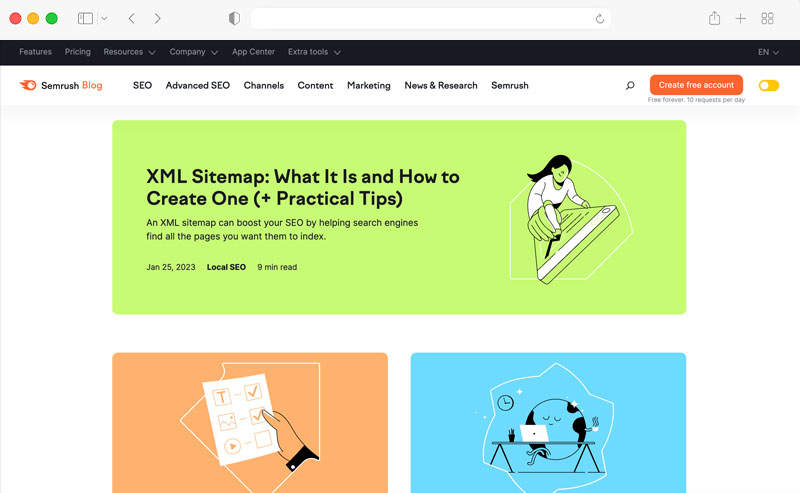
FAQs Page
The FAQs (Frequently Asked Questions) page is a great way to answer any common questions potential customers may have about your business, products, or services.
By having this page on your website, you can decrease the number of inquiries you receive and make it easy for people to find the information they are looking for.
Niche-based Pages
When creating a website for your small business, it’s better to include pages that cater to the specific needs of your niche. Here are some pages that can be beneficial for your business based on your business type:
Pricing Page: This page can provide detailed information on the cost of your products or services and any discounts or promotions that may be available.
Careers: Provide details on job opportunities within your company and how to apply.
Shipping & Returns: Provide your company’s shipping and return policies, including any fees or restrictions.
Order Tracking Page: This page can allow customers to track the status of their orders.
Events Page: Provide information on upcoming events your business will participate in.
Portfolio Page: This page can showcase examples of your company’s work that demonstrate your expertise.
Case Studies: Provide detailed information on specific projects or clients your business has worked with, and highlight your successes.
Press/News Page: Keep visitors informed of recent news or press releases that may be relevant to your business


